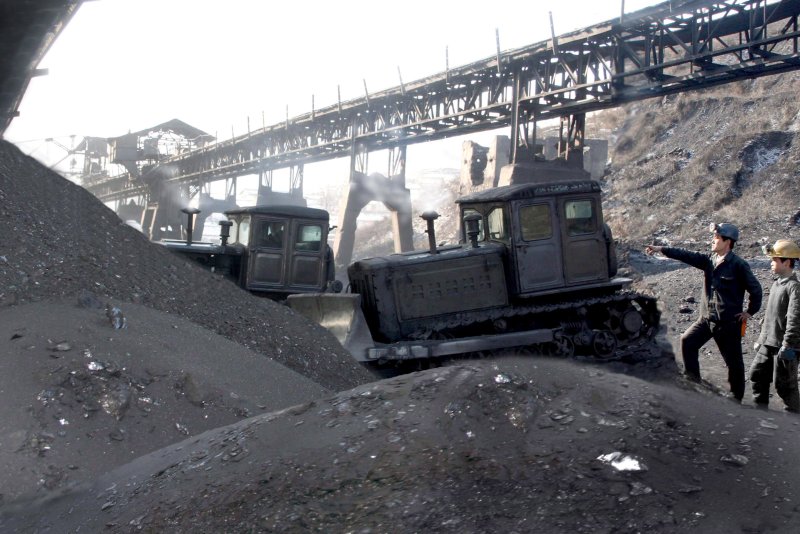North Korea’s coal mines may have been flooded in 2020, causing a suspension in shipping activity, according to a recent press report. File Photo by KCNA/EPA
March 9 (UPI) -- A North Korean port that serves as a hub for the regime's coal exports is showing signs of activity for the first time since August, according to a recent press report.
North Korea is banned from exporting coal. The United Nations Security Council in August 2017 passed Resolution 2371, which prohibited all North Korean exports of coal, iron, lead and seafood.
Any North Korean ships carrying coal to a U.N. member state would be found in violation of sanctions.
Pyongyang's coal exports were banned because of the regime's nuclear weapons and missile programs. According to the Wall Street Journal in December, North Korea may have earned anywhere from $330 million to $410 million in revenue in coal exports in 2020.
Satellite images from Planet Labs show a ship at Nampo Harbor on Feb. 8. The vessel measured about 492 feet in length, Voice of America's Korean service reported Tuesday.
North Korean shipping activity at the harbor was suspended last summer. The ship is the first sign of activity in seven months, the report said.
The satellite evidence of possible North Korean coal shipping activity at the hub comes after other confirmations. According to Voice of America, two ships were seen on site Feb. 15, with one of the two ships leaving port by Feb. 16 -- the same day one new vessel entered the port soon after.
A total of eight ships entered the North Korean coal harbor in a month period from Feb. 8 to Monday, the report said.
Analyst Nick Hansen at the Center for International Security and Cooperation at Stanford University told the news service the two ships in the port Feb. 16 included cargo holds for loading.
Choi Kyung-soo, president of the North Korea Resources Institute in Seoul, told Voice of America that North Korean coal production might have stopped last year after floods and typhoons in August. Coal mines may have been inundated, Choi said.















